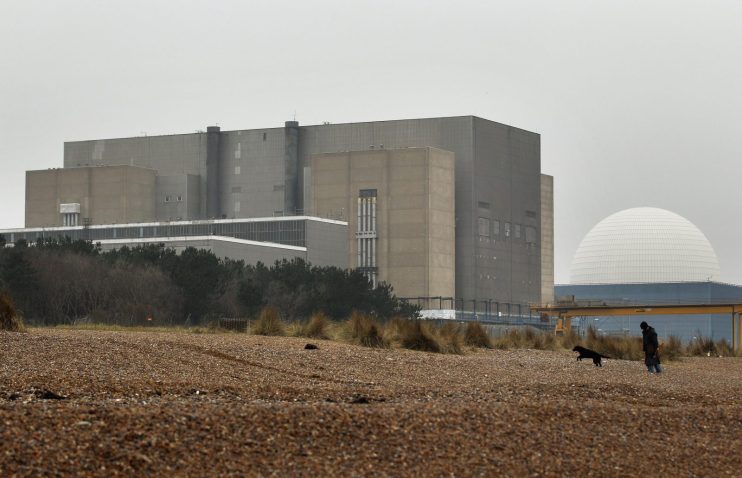Government buys stake in Sizewell C and paves way for funding

The Government has confirmed it will take a 20 per cent stake in EDF’s proposed Sizewell C nuclear power project in Suffolk.
It first bought the option in Sizewell C’s holding company in January for £100m, and has since revealed it will convert the investment into an equity stake if the project reaches fruition.
The decision is more than just a vote of confidence in the project, as it also eases out Beijing’s influence over the country’s energy infrastructure.
China General Nuclear Power – a state supported entity – is now set to exit the development following the removal of its 20 per cent holding.
The Government’s potential stake will give them special powers to intervene on national security grounds, which it plans to extend to other new nuclear projects too.
Downing Street has also made progress on its proposed funding scheme for nuclear power, and has selected Sizewell C to receive public money through the regulatory asset base (RAB) model.
This decision is still subject to negotiations with industry parties – including the Environment Agency, Office for Nuclear Regulation, Ofgem and NNB.
The Government believes Sizewell C meets the criteria of the Nuclear Energy (Financing) Act announced last year, with the government pushing for a renaissance in nuclear power to ensure secure, low-carbon and affordable energy for British households.
In its recently unveiled supply security strategy, Number 10 called for domestic nuclear power capacity to be ramped up from 7GW to 24 GW by 2050 – to ensure it represented at least 25 per cent of the UK’s energy generation.
Prime Minister Boris Johnson is also hoping to greenlight eight new reactors by 2030 – as part of a ‘big new bet’ on nuclear power.
RAB: Backing nuclear power in the key early stages
The RAB model could see nuclear projects receive a regulated funds from electricity suppliers, which will paid for by energy users, to ensure large infrastructure projects get off the ground in the initial development stage.
The same approach was used to fund the £4.2bn Thames Tideway sewer project, which has been under construction since 2016.
It replaces the Contracts for Difference (CfD) scheme, where developers had to finance the entire construction cost of a nuclear project up front, and only began receiving revenue when the station starts generating electricity.
This model led to the cancellation of recent potential projects, such as Hitachi’s project at Wylfa Newydd in Wales and Toshiba’s at Moorside in Cumbria.
Business Secretary Kwasi Kwarteng first unveiled plans to provide public money for nuclear power last November.
A large-scale project funded under the RAB model will a few pounds a year to typical household energy bills during the early stages of constructio, and on average approximately £1 per month during the full construction phase of the project.
Overall, the Government expects consumers to collectively save more than £30bn over the Sizewell C’s lifetime, and on each new large-scale nuclear power station, compared with existing funding mechanisms.
Funding forecasts raise resistance to Sizewell C
Sizewell C is a proposed 3.2 GW light-water reactor, identical in design and blueprints to Hinkley Point C, which could power six million homes.
It has faced local opposition, and there are growing concerns over the costs of construction, with analysts at Greenwich Business School forecasting last month it could take 15 years to complete – at a cost of £35bn, well above the proposed £20bn budget.
The counterpart site, Hinkley Point C, is currently running two-years late and is expected to cost more than 50 per cent over its original budget.
It is now forecast for completion in 2027, at the cost of £23bn.
The government is also consulting on the details of how nuclear projects would receive their funding under the new RAB model – which will close on 4 July 2022.
Sizewell C is also subject to an ongoing application for development consent, which is entirely separate to commercial negotiations on the project.
Alongside financial disagreements, developments around the project also reflect the increasing readiness of the government to intervene in energy projects on security grounds.
Last month, it confirmed probes into both a Chinese-led takeover of a British semiconductor plant and a French telecom tycoon’s increased stake in BT Group.